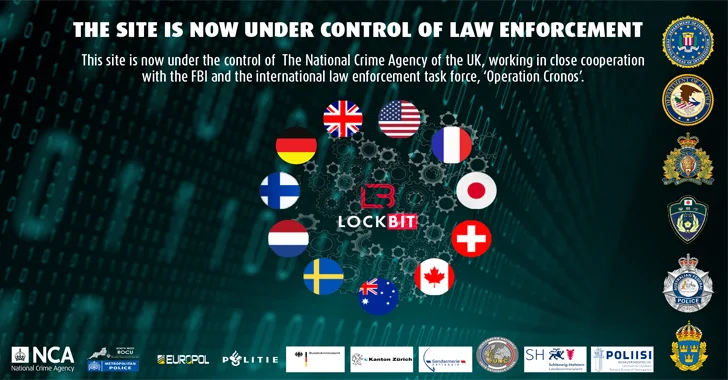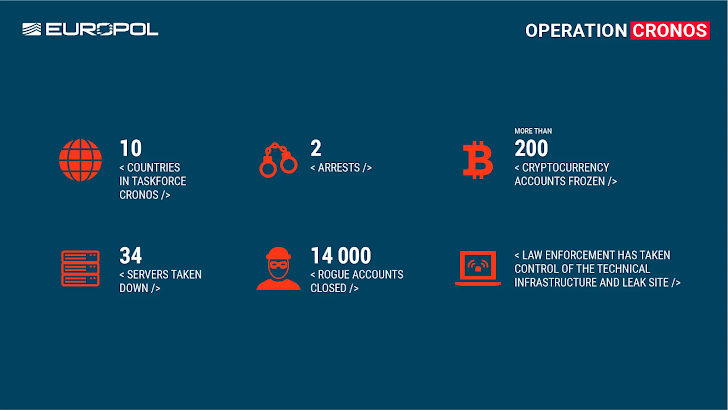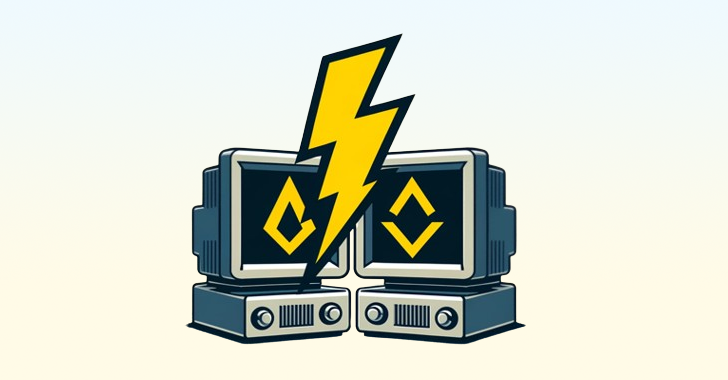The U.K. National Crime Agency (NCA) on Tuesday confirmed that it obtained LockBit’s source code as well as a wealth of intelligence pertaining to its activities and their affiliates as part of a dedicated task force called Operation Cronos.
“Some of the data on LockBit’s systems belonged to victims who had paid a ransom to the threat actors, evidencing that even when a ransom is paid, it does not guarantee that data will be deleted, despite what the criminals have promised,” the agency said.
It also announced the arrest of two LockBit actors in Poland and Ukraine. Over 200 cryptocurrency accounts linked to the group have been frozen. Indictments and sanctions have also been unsealed in the U.S. against two other Russian nationals who are alleged to have carried out LockBit attacks.
Artur Sungatov and Ivan Gennadievich Kondratiev (aka Bassterlord) have been accused of deploying LockBit against numerous victims throughout the U.S., including businesses nationwide in the manufacturing and other industries, as well as victims around the world in the semiconductor and other industries, per the U.S. Department of Justice (DoJ).
Kondratyev has also been charged with three criminal counts arising from his use of the Sodinokibi, also known as REvil, ransomware variant to encrypt data, exfiltrate victim information, and extort a ransom payment from a corporate victim based in Alameda County, California.
The development comes in the aftermath of an international disruption campaign targeting LockBit, which the NCA described as the “world’s most harmful cyber crime group.”
As part of the takedown efforts, the agency said it took control of LockBit’s services and infiltrated its entire criminal enterprise. This includes the administration environment used by affiliates and the public-facing leak site hosted on the dark web.
In addition, 34 servers belonging to LockBit affiliates have also been dismantled and more than 1,000 decryption keys have been retrieved from the confiscated LockBit servers.
LockBit, since its debut in late 2019, runs a ransomware-as-a-service (RaaS) scheme in which the encryptors are licensed to affiliates, who carry out the attacks in exchange for a cut of the ransom proceeds. It is run by a threat actor known as LockBitSupp.
The attacks follow a tactic called double extortion to steal sensitive data prior to encrypting them, with the threat actors applying pressure on victims to make a payment in order to decrypt their files and prevent their data from being published.
“The ransomware group is also infamous for experimenting with new methods for pressuring their victims into paying ransoms,” Europol said.
“Triple extortion is one such method which includes the traditional methods of encrypting the victim’s data and threatening to leak it, but also incorporates distributed denial-of-service (DDoS) attacks as an additional layer of pressure.”
The data theft is facilitated by means of a custom data exfiltration tool codenamed StealBit. The infrastructure, which was used to organize and transfer victim data, has since been seized by authorities from three countries, counting the U.S.
According to Eurojust and DoJ, LockBit attacks are believed to have affected over 2,500 victims all over the world and netted more than $120 million in illicit profits. A decryption tool has also been made available via No More Ransom to recover files encrypted by the ransomware at no cost.
“Through our close collaboration, we have hacked the hackers; taken control of their infrastructure, seized their source code, and obtained keys that will help victims decrypt their systems,” NCA Director General Graeme Biggar said.
“As of today, LockBit are locked out. We have damaged the capability and most notably, the credibility of a group that depended on secrecy and anonymity. LockBit may seek to rebuild their criminal enterprise. However, we know who they are, and how they operate.”












